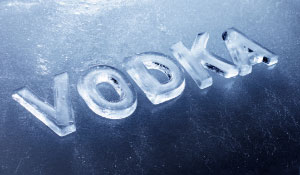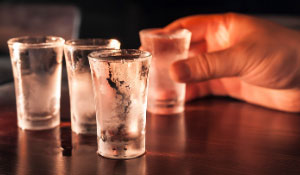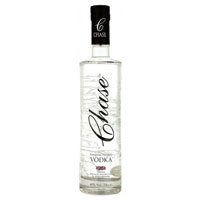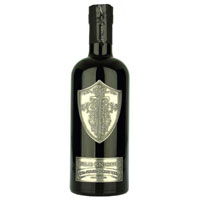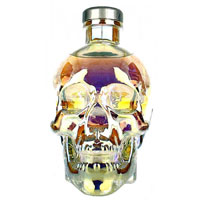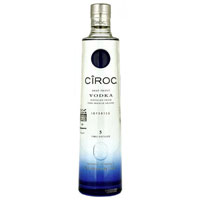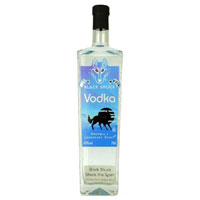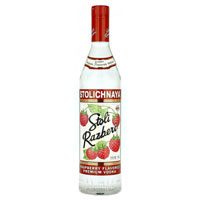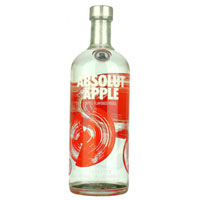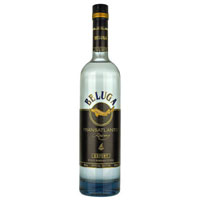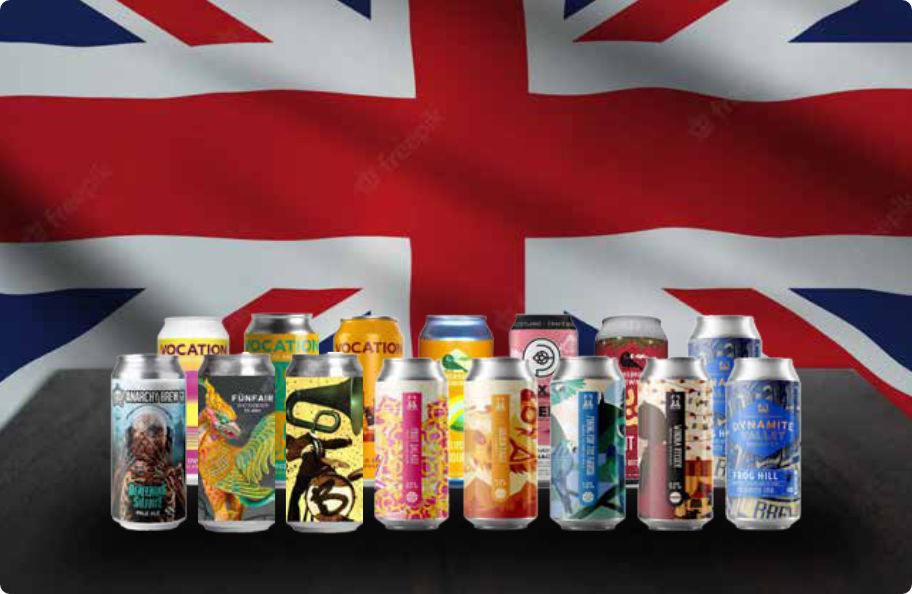Vodka
National Vodka Day
Everything You Need To Know About Vodka On National Vodka Day
National Vodka Day is on 4th October 2020. Vodka is one of the world’s most popular spirits, yet it’s misunderstood by many as odourless, flavourless alcohol to provide a buzz – and not much else.
We’re going to look beneath the surface of this versatile drink. If you’ve ever found yourself wondering what the fuss is about vodka, this article is for you.
We’ll delve into the dramatic history about who invented vodka, discover whether vodka is really made from potatoes, and learn new ways to drink vodka – beyond mixing it with coca-cola.
Where does vodka originate from?
If you’re ever found yourself wondering… “Who invented vodka?” then strap in, because the answer is not so simple!
A topic of passionate dispute between the world’s top vodka consuming nations, Russia and Poland, the answer to the question of where vodka originated from is murky and controversial.
Many people associate vodka with Russia, and rightly so. The Russians are the largest consumers of vodka in the world, drinking over 17 shots of vodka per person over an average month.
Adding weight to the Russian’s claim to vodka, the word vodka is derived from the Russian word ‘Voda’, meaning ‘water’.
The level of passion for vodka in Russia is such that The Museum of Vodka in Moscow claims that vodka helped create socialism, strengthen Russian nationalism, and it’s even credited in the success of the pioneering Soviet Space Programme.
However, Poland is not far behind in terms of consumption, drinking a mighty 13 shots per person per month. And in 1977, Poland fired the first shot in what was to be known as The Vodka Wars.
Poland claimed in the International Trade Court that the first vodka came from Poland and that vodka produced in any other country should have to be known as ‘Bread Wine’.
Initially, the USSR didn’t take this claim too seriously – thinking that the Polish were playing a little joke on them. When they realised that Poland was serious, the USSR commissioned an investigation into the history of vodka in Russia, by Soviet scholar William Pokhlyobkin.
Pokhlyobkin found the origins of Russian vodka to predate the Polish claims by hundreds of years. This was enough to convince the International Trade Court at the time, though the accuracy and evidence for Russia’s claims has been widely criticised by historians ever since.
The argument about who invented vodka is ongoing until this day. Poland lays claim to the earliest written reference to the word ‘vodka’, appearing in a text from 1543.
The consensus among historians is that many similar vodka-like substances were created independently in Slavic countries around the 16th-17th Century.
Early ‘vodka’ was probably used as a medicinal treatment for a wide range of illnesses including the Black Death. Over time, people probably got a taste for this strong, intense spirit and began imbibing it for pleasure.
What is vodka made from?
Pure vodka is a blend of ethanol and water, usually around 37.5-40% ABV. In the EU, regulations state that vodka must be above 37.5% ABV, and in the USA above 40% ABV.
The ethanol used in vodka can be distilled for almost any starch, though commonly it is distilled from fermented wheat, rye or barley, and more uncommonly corn, grapes, sugar cane, beetroots or practically any starchy vegetable.
Hold on… What about the widely-held belief that most vodka is made from potatoes?
Whilst it is possible to make vodka from potatoes, it’s a common misconception that most, or all vodkas are made from potatoes. There are some vodka brands, such as Chase English Potato Vodka that are made from potatoes, but it’s the exception rather than the rule.
Water is also an important ingredient in vodka, making up 60-70% of the finished spirit. As such, many vodka distilleries are located in areas with a good quality water source. Norfolk’s Wild Knight Ultra-Premium English Vodka distils their vodka using pure water from Norfolk’s ancient chalk aquifers.
After distillation, vodka is sometimes filtered through carbon, or other minerals, to remove the remaining impurities. Super-premium brand Crystal Head Aurora Vodka filters their distillate 7 times, the final three filtrations through Herkimer diamonds.
Though pure vodka has a reputation for being flavourless, the raw ingredients used in the distillation process do affect the flavour of the finished vodka.
Let’s find out how…
What does vodka taste like?
When you think of vodka, it might be hard to think of how to describe the flavour.
After all, pure vodka is designed to be fairly neutral-tasting to mix in a wide variety of drinks.
However, different vodkas do have different characteristics which are particularly apparent when pure vodka is enjoyed neat.
Pure Vodka
Vodkas distilled from wheat tend to have a slight pepper or aniseed character, with hints of lemon zest.
Rye gives the vodka a natural sweetness and nutty character, whilst potato results in a creamy spirit, with a fuller flavour than grain-based vodkas. Many Polish vodkas are rye-based.
The use of grapes as a distillate, such as in French vodka brand Cîroc, lends a zesty lemon flavour to the vodka.
Finally, sugar beet-based vodkas such as English brand, Black Shuck Vodka often take on a vanilla character and retain some sweetness from the beet, and have a reputation for being particularly smooth.
Flavoured Vodka
If the thought of sipping on a glass of neat vodka feels a step too far, there’s an almost endless variety of flavoured vodkas on the market with many familiar flavours.
According to EU regulations, flavoured vodka must by above 37.5% ABV, and may be sweetened, blended, flavoured, matured or coloured.
Many flavoured vodkas are fruit-based, such as Stolichnaya Razberi Russian Vodka which is flavoured with natural raspberry essence. This gives it a fruity flavour and subtle sweetness, against the peppery, spicy Stolichnaya vodka base.
Polish distillers Debowa produce a range of naturally flavoured vodkas, including plum, blackberry, and honey. If you’re going to start anywhere though, we’d recommend Debowa Black Oak Vodka. Jet black, and with the flavour of coffee, almonds and caramel, Black Oak is rich, dry and complex.
If all that talk about flavour has your tastebuds tingling, read on to learn about the many and varied ways to enjoy vodka.
How do I drink vodka?
As you’re hopefully discovering, vodka is an incredibly versatile drink that can be made from a wide variety of base ingredients and comes in an incredible range of flavours.
All this variety has led to a myriad of ways to drink vodka – we’re going to start from the traditional and work our way through to more contemporary ways to enjoy this versatile spirit.
In Russia and Scandanavia, vodka is traditionally poured straight from the freezer and taken neat as a shot.
You might be wondering… does vodka freeze?
It is possible to freeze vodka, but not at the temperatures in your freezer at home. Depending on the alcohol content and any flavourings, vodka would freeze at around -27C, and domestic freezers generally only reach around -18C.
Polish vodka traditions also call for neat vodka, however, it’s served at room temperature and sipped. Hardcore!
However, these are just the traditional ways to drink vodka.
Since the explosion of the vodka market after the Second World War, vodka has become a popular spirit to be mixed with a variety of mixers and as an ingredient in many classic and contemporary cocktails.
Here are three cocktail recipes to try, whether you’re making your first cocktail, or you’re a dab hand at mixing drinks.
Why not try one on 4th October to celebrate National Vodka Day?
Simple Vodka Cocktail – Screwdriver
If you’re new to vodka cocktails, the screwdriver is a great place to start. Using a premium vodka such as Soplica Szlachetna Vodka, and freshly squeezed orange juice will elevate this fresh breakfast cocktail to delicious new levels.
Ingredients
25ml Premium vodka
50ml Freshly squeezed orange juice
Ice cubes
Slice orange (garnish)
Simply add ice to a highball glass, and pour over the vodka, ideally straight from the freezer. Add the chilled orange juice, and garnish with a slice of orange.
Intermediate Vodka Cocktail – Absolut Äpple Mule
A fruity twist on the classic Moscow Mule, this cocktail uses Absolut Äpple Vodka to bring the flavour of ripe red apples to this spicy ginger-beer based cocktail.
Traditionally, the Moscow Mule is served in a copper mug to keep the drink cold and enhance the flavour and aroma of the drink – but you can also serve it in a highball glass if you don’t have a copper mug to hand.
Ingredients
45ml Absolut Äpple Vodka
15ml Lime juice
Ginger beer
1 Wedge apple (Garnish)
Ice cubes
Fill a copper Moscow Mule mug with ice cubes. Pour over Absolut Äpple and lime juice, then top up with ginger beer. Garnish with a wedge of apple.
Adventurous Vodka Cocktail – Vodka Martini
Despite James Bond’s preference for a shaken martini, this classic cocktail is best stirred, to achieve the perfect silky texture.
Using high-quality ingredients is essential since the vodka is the star of the show. We recommend Beluga Vodka Transatlantic Racing Special Edition. Distilled with pure Siberian spring water and filtered through cotton, it’s exceptionally smooth.
Ingredients
60ml Vodka
10-15ml Dry Vermouth (to taste)
Ice
Lemon peel (Garnish)
Pour the vodka and dry vermouth into a cocktail shaker filled with ice. Stir the ingredients together, then strain into a chilled cocktail glass. Garnish with a twist of lemon peel, or an olive, if you prefer.
Conclusion
Hopefully, you now know a bit more about vodka, from its origins in Eastern Europe, how it’s made, and the sheer range of flavours in the versatile spirit.
Now you’re the expert, why not shop our range of vodkas and flavoured vodkas, and see what takes your fancy!




